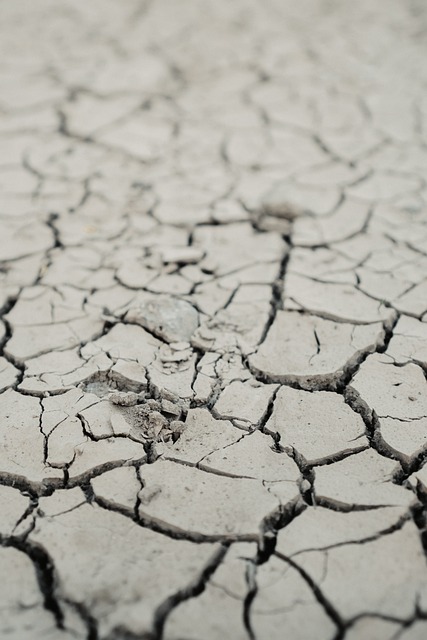Introduction
Dry and dehydrated skin are common concerns that can affect anyone, regardless of age or skin type. While often used interchangeably, dryness and dehydration are different conditions that require unique care approaches. This comprehensive guide explains the difference between the two, highlights their causes and symptoms, and provides a step-by-step skincare routine, product recommendations, and lifestyle tips to help restore hydration and maintain healthy, glowing skin.
Understanding Dry vs. Dehydrated Skin
Dry Skin
Dry skin is a skin type that lacks oil (sebum). It is often genetically determined and tends to feel rough, flaky, and tight year-round. Common characteristics include:
- Rough texture
- Flaking and peeling
- Itchiness or sensitivity
- Dull appearance
Dehydrated Skin
Dehydrated skin is a temporary condition where the skin lacks water. Any skin type—even oily—can become dehydrated due to factors like weather, lifestyle, or improper skincare.
Signs of dehydrated skin:
- Tightness
- Dullness
- Fine lines (especially around the eyes and mouth)
- Increased sensitivity
Causes of Dry and Dehydrated Skin
Environmental Factors
- Cold, dry climates
- Indoor heating or air conditioning
- Sun exposure and wind
Lifestyle Habits
- Inadequate water intake
- Overuse of alcohol or caffeine
- High sugar and low-nutrient diets
Skincare Mistakes
- Using harsh cleansers or exfoliants
- Skipping moisturizers
- Not using sunscreen
Medical Conditions
- Eczema, psoriasis, or thyroid issues
- Aging (natural decrease in oil production)
Daily Skincare Routine for Dry and Dehydrated Skin
A consistent skincare routine can significantly improve hydration and overall skin health.
Morning Routine
- Gentle Cleanser
Use a hydrating, sulfate-free cleanser to avoid stripping the skin’s natural oils. Look for ingredients like glycerin or ceramides.
- Hydrating Toner or Essence
Apply a toner with ingredients such as hyaluronic acid, aloe vera, or rose water to replenish moisture.
- Serum
Choose a serum with hydrating ingredients like:
- Hyaluronic acid
- Vitamin B5 (panthenol)
- Niacinamide (for barrier repair)
- Moisturizer
Use a rich cream that locks in moisture with:
- Sunscreen
Always finish with a broad-spectrum SPF 30 or higher. Sun damage worsens dryness and dehydration.
Evening Routine
- Double Cleanse (if wearing makeup or sunscreen)
Start with a cleansing balm or oil, followed by a gentle cream cleanser.
- Hydrating Toner
Same as morning use, or opt for a mist for extra comfort.
- Night Serum or Treatment
Use hydrating serums or sleeping masks rich in peptides, hyaluronic acid, or niacinamide.
- Night Cream or Overnight Mask
Choose a thicker night cream to prevent overnight moisture loss.
- Optional: Facial Oil
Seal in moisture with oils like jojoba, marula, or rosehip.
Recommended Ingredients to Look For
For Hydration (Water Retention)
- Hyaluronic acid
- Glycerin
- Urea
For Moisturization (Oil Retention)
- Ceramides
- Squalane
- Shea butter
- Fatty acids (e.g., linoleic acid)
For Barrier Repair
- Niacinamide
- Panthenol (Vitamin B5)
- Cholesterol
What to Avoid
- Alcohol-based toners or astringents
- Over-exfoliating (no more than 1–2 times per week)
- Fragrance-heavy products (can irritate sensitive, dry skin)
- Hot water (use lukewarm water when cleansing)
Lifestyle and Dietary Tips
- Drink plenty of water (8–10 glasses per day)
- Eat foods rich in Omega-3 fatty acids (salmon, flaxseed, walnuts)
- Incorporate fruits and vegetables high in water content (cucumber, watermelon, oranges)
- Use a humidifier indoors during dry seasons
- Get enough sleep and manage stress, which can affect the skin barrier
Weekly Treatments and Extra Care
- Hydrating Sheet Masks: Use 1–2 times weekly
- Gentle Exfoliation: Choose lactic acid or enzyme exfoliants to remove dead skin cells
- DIY Masks: Ingredients like honey, yogurt, and avocado can deeply nourish dry skin
Common Myths About Dry and Dehydrated Skin
Myth 1: Oily skin can’t be dehydrated.
Truth: Oily skin can still lack water and feel tight or rough.
Myth 2: Drinking water alone will fix dehydrated skin.
Truth: Water helps, but topical products are also essential to lock in hydration.
Myth 3: You shouldn’t moisturize if you have acne-prone skin.
Truth: Lack of hydration can trigger more oil production and worsen acne.
Frequently Asked Questions (FAQs)
Q1: Can I use oils instead of moisturizers?
Oils can seal in moisture but don’t hydrate the skin on their own. Combine oils with a moisturizer.
Q2: How can I tell if my skin is dry or dehydrated?
Dry skin feels rough and lacks oil. Dehydrated skin feels tight and dull but may still be oily.
Q3: What is the best moisturizer for dry skin?
Look for creams with ceramides, and hyaluronic acid.
Q4: Should I exfoliate dry or dehydrated skin?
Yes, but gently. Use mild chemical exfoliants like lactic acid once or twice a week.
Conclusion
Caring for dry and dehydrated skin requires a thoughtful combination of the right skincare products, gentle routines, and supportive lifestyle habits. With consistent hydration, nourishment, and barrier support, your skin can transform from flaky and tight to smooth, supple, and radiant. Make small, consistent changes, and your skin will thank you with a healthy, luminous glow.
For more skincare guides and wellness tips, follow our blog and connect with us on social media!
